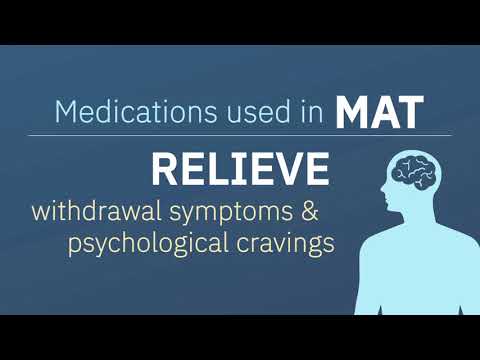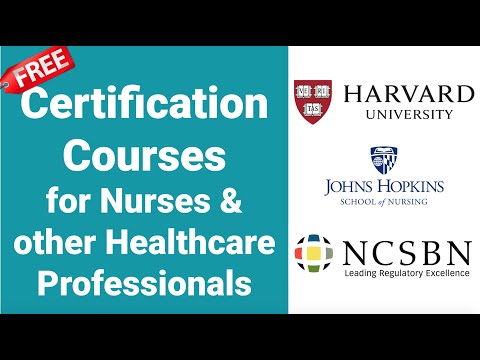Medication Assisted Treatment is Used for What?
Contents
- Introduction
- What is Medication Assisted Treatment?
- What conditions can Medication Assisted Treatment be used for?
- How does Medication Assisted Treatment work?
- What are the benefits of Medication Assisted Treatment?
- What are the risks of Medication Assisted Treatment?
- What are the side effects of Medication Assisted Treatment?
- Who can provide Medication Assisted Treatment?
- How do I know if Medication Assisted Treatment is right for me?
- Where can I get Medication Assisted Treatment?
Medication Assisted Treatment is a term used to describe the use of medications, in combination with counseling and behavioral therapies, to treat substance use disorders.
Checkout this video:
Introduction
Medication Assisted Treatment is the use of medications, in combination with counseling and behavioral therapies, to provide a “whole-patient” approach to the treatment of substance use disorders. Medications used in Medication Assisted Treatment can help reduce withdrawal symptoms, relieve cravings, and block the effects of the abused substance.
There are three FDA-approved medications for the treatment of alcohol addiction: disulfiram, naltrexone, and acamprosate. Disulfiram works by causing uncomfortable side effects when alcohol is consumed. Naltrexone blocks the “high” that people feel when they drink alcohol. Acamprosate helps reduce cravings for alcohol in people who have stopped drinking.
There are also three FDA-approved medications for the treatment of opioid addiction: methadone, buprenorphine, and naltrexone. Methadone is a long-acting opioid that is taken daily to prevent withdrawal symptoms and reduce cravings. Buprenorphine is a partial opioid agonist that prevents withdrawal symptoms and reduces cravings without producing the “high” associated with other opioids. Naltrexone is an opioid antagonist that blocks the effects of opioids and helps to prevent relapse.
Medication assisted treatment is controversial because some people believe that it simply replaces one addiction with another. However, research has shown that Medication Assisted Treatment can be effective in helping people recover from substance use disorders.
What is Medication Assisted Treatment?
Medication Assisted Treatment, or MAT, is the use of FDA-approved medications, in combination with counseling and behavioral therapies, to provide a “whole-patient” approach to the treatment of substance use disorders.
MAT is an evidence-based practice that has been shown to be effective in treating opioid use disorders. When combined with counseling and other support services, MAT can help people reduce or stop their use of opioids and improve their overall health and well-being.
What conditions can Medication Assisted Treatment be used for?
Medication Assisted Treatment (MAT) is a treatment approach that combines behavioral therapy and medications to treat substance abuse disorders. MAT can be used to treat a variety of substance abuse disorders, including alcohol addiction, opioid addiction, and other forms of substance abuse.
How does Medication Assisted Treatment work?
Medication assisted treatment is a comprehensive approach to treating addiction that includes the use of medication to help manage withdrawal symptoms and cravings. Medication assisted treatment is most commonly used to treat addiction to opioids, such as heroin or prescription painkillers, but can also be used to treat alcohol addiction.
Withdrawal from opioids can be extremely uncomfortable and even dangerous, so medication assisted treatment is often the best way to ensure that someone struggling with addiction stays safe during detox and withdrawal. Medication assisted treatment is not a cure for addiction, but it can be an important part of recovery.
What are the benefits of Medication Assisted Treatment?
Medication Assisted Treatment, or MAT, is a type of treatment that combines medication and behavioral therapy to help people recover from addiction. MAT is used to treat addiction to opioids, alcohol, and other substances.
MAT can be an effective treatment for addiction because it:
-Reduces cravings and withdrawal symptoms
-Increases retention in treatment programs
-Helps people abstain from substance use
-Improves functioning in work, home, and social life
If you or someone you know is struggling with addiction, Medication Assisted Treatment may be a good option. Talk to your doctor or a mental health professional to learn more about MAT and whether it might be right for you.
What are the risks of Medication Assisted Treatment?
There are certain risks associated with any type of medical treatment, and Medication Assisted Treatment is no different. However, the risks associated with this type of treatment tend to be lower than the risks associated with other types of treatments, such as traditional detoxification or rehabilitation programs.
The most common side effects of Medication Assisted Treatment are mild and include nausea, vomiting, diarrhea, constipation, headaches, drowsiness, and dizziness. These side effects usually go away after a few days or weeks of treatment.
More serious side effects are rare but can include liver damage, kidney damage, respiratory depression, seizures, and allergic reactions. These side effects are usually only seen in people who abuse their medication or take it for a longer period of time than recommended.
If you are considering Medication Assisted Treatment for your addiction, it is important to weigh the risks and benefits of this type of treatment with your doctor or another medical professional before making a decision.
What are the side effects of Medication Assisted Treatment?
While all medications have the potential for side effects, many people who take medications for Medication Assisted Treatment find that the benefits outweigh the risks. However, it is important to be aware of the potential side effects of any medication before starting treatment.
Side effects of Medication Assisted Treatment can include:
-Drowsiness
-Constipation
-Nausea and vomiting
-Urinary retention
-Skin rashes
-Changes in heart rate or blood pressure
Who can provide Medication Assisted Treatment?
In order to provide Medication Assisted Treatment (MAT), a healthcare provider must complete a certain amount of training and be certified by the Substance Abuse and mental health Services Administration (SAMHSA). Providers who can prescribe MAT medications include:
-Physicians
-Nurse practitioners
–physician assistants
Other providers who can play a role in MAT include:
-Counselors
-Social workers
-Psychologists
-Peer support specialists
How do I know if Medication Assisted Treatment is right for me?
There is no one-size-fits-all answer to this question, as the appropriateness of medication assisted treatment (MAT) depends on a number of individual factors. However, MAT may be an appropriate choice for people who have struggled to maintain abstinence from opioids despite previous treatment attempts. Additionally, MAT has been shown to be particularly effective in people who have co-occurring mental health disorders. If you are considering MAT, it is important to consult with a qualified healthcare professional to discuss whether it is right for you.
Where can I get Medication Assisted Treatment?
Medication Assisted Treatment, or MAT, is a treatment method that uses medication in combination with counseling and behavioral therapies to treat substance abuse disorders. MAT is used to treat both alcohol and opiate dependence.
There are many Treatment Centers across the country that offer MAT as part of their program. To find a Treatment Center near you, please call our toll-free number at 1-888-744-0069.







